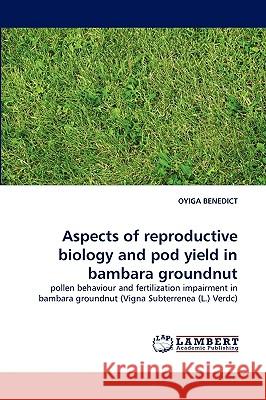Aspects of Reproductive Biology and Pod Yield in Bambara Groundnut » książka
Aspects of Reproductive Biology and Pod Yield in Bambara Groundnut
ISBN-13: 9783838387628 / Angielski / Miękka / 2010 / 108 str.
Attempts to improve bambara groundnut through the conventional breeding methods have not been successful due to the failure of the crop to set seeds after artificial crosses. Thus, the available genotypes are selections from the aboriginal landraces. The architecture of the reproductive structures and longevity of the pollens grains may provide a clue to the possible causes of hybridization failure. Pollen viability and longevity are important physiological attributes that enable the breeder to understand species reproductive performance and therefore, enhance the successful implementation of breeding programmes. Thus, the present work investigates (i) the reproductive structures of bambara groundnut lines as a prelude to ascertaining the causes of hybridization failure in breeding programmes and, (ii) the yield potentials of bambara groundnut lines in relation to the reproductive biology, floral and agronomic traits. The findings are novel and the methodology adopted could be extended and utilized in addressing artificial hybridization problems in other crops. This work should be recommended for plant breeders, research institutions and scientists in agronomy and crop improvement.











